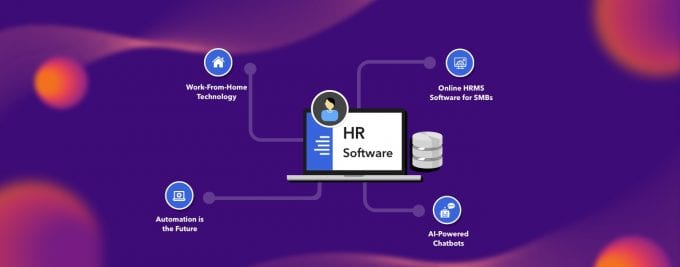Modern technology is an amazing commodity and one we could not be more thankful for during this pandemic. Coronavirus has not only affected our health but also our daily lives and very few of us are living out normality.
With a large percentage of the population now working from home, employers must do everything they can to keep communication channels open within the workforce.
Not only does this ensure a smooth running of the business, but regular communication within your staff can be a real saving grace for us all at this time. Being on lockdown and having little stimulation has quickly become tedious and monotonous for everyone, so having a little comfort catching up with colleagues can go a long way.
Emails have been an essential part of work-life for decades and certainly do have their pros within a business. These are fine for normal office life but they are impersonal. They can also be misinterpreted easily as tone of voice can be misread.
That’s why it’s important to become more creative with how we communicate with our staff. Everybody should feel safe, valued and respected during this time and by making a few small changes to keep up correspondence during this odd time can make a real difference.
1. HR Software

Being flexible with staff members is increasingly crucial at the moment. Whilst we do all try to stick to office hours, it isn’t always conducive to all our workforce and some hours may have to be completed in the evening or weekend to accommodate for family life at home.
This can be increasingly frustrating when you are needing updates from people and they aren’t available, making collaborative tasks difficult.
Using a cloud-based HR system, like those from Cezanne HR, can mean everything within your business can be updated as it happens to allow you to have a quick overview of how everyone is progressing. You can see the full services supplied by Cezanne HR by visiting cezannehr.com.
It can also keep track of payroll and holidays without having to chase for information and can keep everyone in your workforce in the loop.
2. Instant Messaging

There are tonnes of instant messaging platforms out there so before jumping into one, it’s good to be a bit of research to see what works best for you and your team.
Instant messaging is a brilliant way to get a quick update or to check-in on a project or staff member. Constant emails can seem to be harassing and can quickly build up in a recipient’s inbox. What appears to be an ever-growing, unmanageable workload can be better communicated over instant messaging.
Separate channels can be set up for various teams, projects, clients or even just a general chat for regular personal updates and sharing something a bit more light-hearted to keep employees smiling.
You are more likely to get a quick response from an instant message rather than an email, which removes lost work time while awaiting updates or information from others. It can also give you the option of seeing who is online so you can make a decision who to reach out to, depending on how urgently you need a reply.
3. Video Calling

This is the best way to get that face-to-face experience we are all missing at work. Video calling can connect as many members of staff as you wish at the same time.
Seeing a familiar face is needed while we are all confined to our homes and it can give staff the closest form of normality we can achieve at this time. Scheduling these at the same time you would have held meetings or daily briefings back at the office will give a much-needed routine to your team.
It is also a brilliant tool for training and showing new processes, as over half of us are visual learners, it is the most effective way to communicate this. While emails can hold a lot of information, it can easily be lost in translation and lead to wasted time and lost man-hours.
4. Teleconference

Just like video calling, teleconferencing can host your staff and clients at one time. It is more personal than an email or instant messaging and can be more convenient to some.
Video calls can work well if staff have a private area to work. However, if they have children or live with other people in a small space, they may not have a suitable area to put on display to clients.
Teleconferencing keeps things professional while alleviating any worry of visual interruptions. It can also benefit if others are needing to multitask so they can listen in while continuing with other work.
5. Calendars

You are probably already using online calendars to organize your workload but have you considered communal calendars?
While project deadlines may have been easy to communicate in the workplace before lockdown, without proper organization, something could easily be missed now.
Having a good reference point of these can help staff prioritize tasks and alert you early on if they believe this will not be achieved in time.
It can also help colleagues keep track of when others are available, staff members can note when they will be away from their desks. For example, doctor appointments, when they are choosing to take their daily exercise and even certain hours for home-schooling children.
It is also important to celebrate personal events, such as anniversaries or birthdays. These are often being missed nowadays as general chats in the office are no longer happening.
Acknowledgment of these, even if just briefly, can make their day a little more bearable while stuck at home without loved ones.
Remember to be flexible, understanding and as calm as possible for your staff during this time. Nobody could have prepared for what the world is currently experiencing, but if handled correctly, you and your business can come out the other side with happy clients and more importantly, happy staff.
When we do eventually return to normal, don’t force staff back into the office straight away, make sure it is safe to do so first. You need to assess if staff can work and start looking now into professional cleaners who can offer a deep cleaning service so your premises are sanitized before you enter, especially if you are in a highly infected area such as the capital. If you’re based in the City, then you may need to find a reliable commercial cleaning provider in London but with demand at an all-time high, ensure you can book this far enough in advance.









